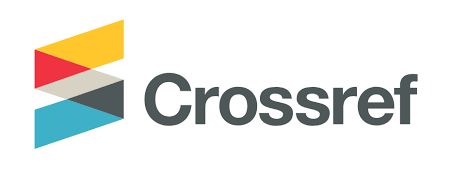SOSIALISASI PENCEGAHAN EKSPLOITASI ANAK DI MEDIA SOSIAL DI DESA BONTO RANNU KABUPATEN BULUKUMBA
Keywords:
Sosialisasi, Eksploitasi Anak, Media Sosial, PedesaanAbstract
Social media has become one of the main platforms for children to interact and get information. In today's digital era, there has been an increase in cases of child exploitation on social media.. The expansion of social networks and mobile devices plays an important role in increasing cases of children exploitation, this makes it easier to produce, access, store and distribute the potentials of child abuse. In the socialization process, it was explained that the role of parents and social groups in the community in preventing and protecting children from the dangers of exploitation through social media is an action that needs to be pursued. Furthermore, the evaluation process is carried out to find out deficiencies and obstacles in the implementation of activities so that improvements can be made.
Downloads
References
Ariate, R. J., Cruz, R. J., Dimaculangan, J., & Tibayan, C. A. (2015). The role of facebook in sustaining relationship among families of ofw. LPU Laguna Journal of Arts and Sciences Communication Research, 2(1), 156–181.
Bissias, G., Levine, B., Liberatore, M., Lynn, B., Moore, J., Wallach, H., & Wolak, J. (2016). Characterization of contact offenders and child exploitation material trafficking on five peer-to-peer networks. Child Abuse and Neglect, 52(2011), 185–199. https://doi.org/10.1016/j.chiabu.2015.10.022
Cabecinha-Alati, S., Montreuil, T. C., & Langevin, R. (2022). The role of maternal child maltreatment history and unsupportive emotion socialization in the intergenerational transmission of emotion regulation difficulties. Child Abuse & Neglect, 129, 105661. https://doi.org/https://doi.org/10.1016/j.chiabu.2022.105661
Dewi Rokhmah, Iken Nafikadini, E. I. (2009). Penelitian Kualitatif. Journal Equilibrium, 5 No. 9(127), 14–18. yusuf.staff.ub.ac.id/files/2012/11/Jurnal-Penelitian-Kualitatif.pdf
Ellison, N. B., Steinfield, C., & Lampe, C. (2007). The benefits of facebook “friends:” social capital and college students’ use of online social network sites. Journal of Computer-Mediated Communication, 12(4), 1143–1168. https://doi.org/10.1111/j.1083-6101.2007.00367.x
G. Westlake, B., & Bouchard, M. (2016). Criminal Careers in Cyberspace: Examining Website Failure within Child Exploitation Networks. Justice Quarterly, 33(7), 1154–1181. https://doi.org/10.1080/07418825.2015.1046393
Hidayat, A. K. A. (2016). PERAN ORANGTUA DALAM PEMANFAATAN MEDIA SOSIAL TERHADAP PENDIDIKAN ANAK.
Kavenagh, M., Hua, N., & Wekerle, C. (2023). Sexual exploitation of children: Barriers for boys in accessing social supports for victimization. Child Abuse and Neglect, 142(P2), 106129. https://doi.org/10.1016/j.chiabu.2023.106129
Lee, C. S., & Ma, L. (2012). News sharing in social media: The effect of gratifications and prior experience. Computers in Human Behavior, 28(2), 331–339. https://doi.org/10.1016/j.chb.2011.10.002.
Nielsen, L. R. K. K. P. (2016). What factors influence knowledge sharing in organizations? A social dilemma perspective of social media communication. Journal of Knowledge Management, 20 (6). https://doi.org/10.1108/JKM-03-2016-0112D
Roche, S., Otarra, C., Fell, I., Belle Torres, C., & Rees, S. (2023). Online sexual exploitation of children in the Philippines: A scoping review. Children and Youth Services Review, 148(February), 106861. https://doi.org/10.1016/j.childyouth.2023.106861
Siregar, F. A., & Muslem. (2022). Eksploitasi Anak Di Ruang Media; Sebuah Tinjuan Hukum. Al-Qadha : Jurnal Hukum Islam Dan Perundang-Undangan, 9(1), 215–230. https://doi.org/10.32505/qadha.v9i1.4060
Westlake, B. G., Bouchard, M., & Frank, R. (2011). Finding the Key Players in Online Child Exploitation Networks. Policy & Internet, 3(2), 104–135. https://doi.org/10.2202/1944-2866.1126
Xu, Y. (2023). An exploration of the role played by attachment factors in the formation of social media addiction from a cognition-affect-conation perspective. Acta Psychologica, 236, 103904. https://doi.org/https://doi.org/10.1016/j.actpsy.2023.10390
Downloads
Published
Issue
Section
License
Copyright (c) 2023 EJOIN : Jurnal Pengabdian Masyarakat

This work is licensed under a Creative Commons Attribution-ShareAlike 4.0 International License.









